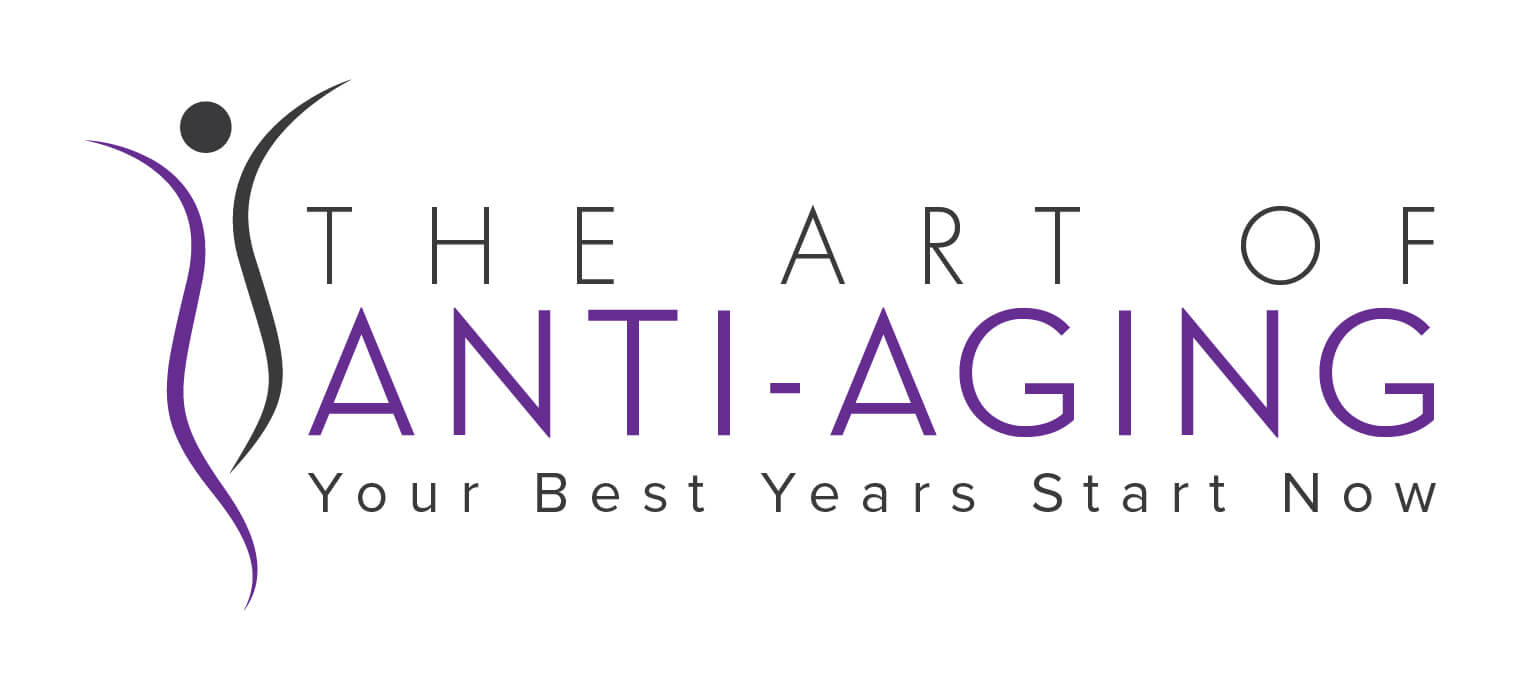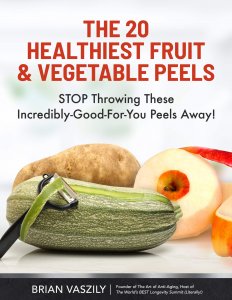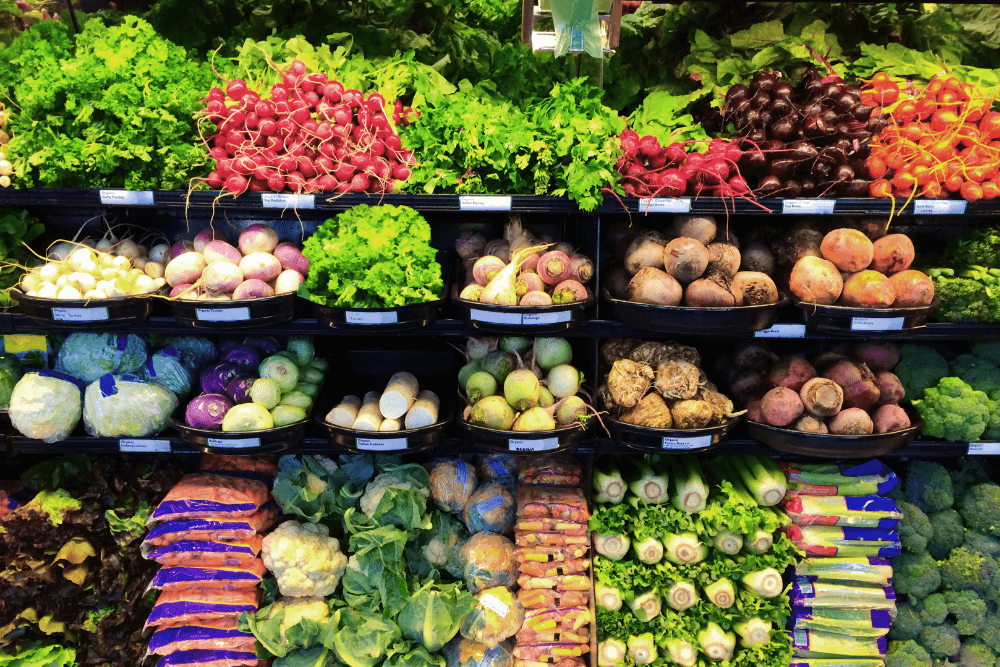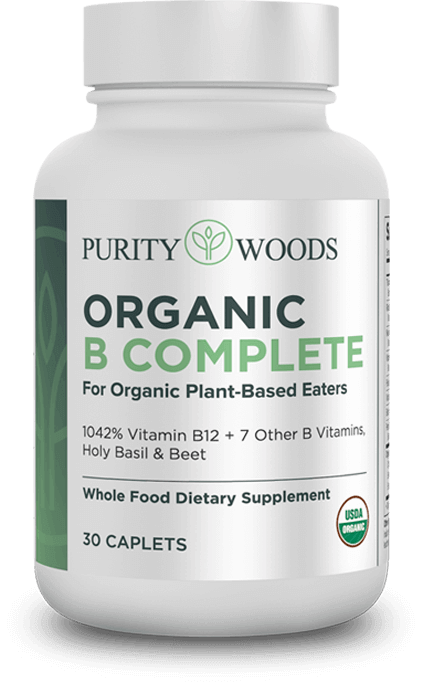The fruits and vegetables you eat today are not what they used to be. Research shows that decades ago, a tomato packed up to 50% more vitamin C, iron, and antioxidants than the same tomato at your grocery store today.
Why? Modern farming prioritizes speed, size, and shelf life over nutrient density. Stripped soils, synthetic fertilizers, and high-yield breeding have all played a role.
And the consequences are serious—nutrient-poor food means weaker immunity, faster aging, and a greater risk of chronic disease.
The good news? You are not powerless. Let’s dive deeper into why fruits and vegetables are becoming less nutritious, how the declining nutrient density of produce affects our health, and what you can do to get the nutrients your body needs to fight disease and live well.
Are Fruits and Vegetables Really Less Nutritious Today? Here Is The Evidence
If you think you are getting the same nutrients from an apple today as your grandparents did, think again. Research proves that the nutrient content in fruits and vegetables has been steadily declining over the past several decades.
A groundbreaking study from the Journal of the American College of Nutrition analyzed USDA data from 1950 to 1999 and found that 43 common crops had lost significant amounts of protein, calcium, phosphorus, iron, riboflavin, and vitamin C. More recent research confirms that essential antioxidants—polyphenols, flavonoids, beta-carotene, and lycopene—are also decreasing in today’s produce.
The question is: why is this happening? The answer lies in how our food is grown.
Key Causes Behind Nutrient Decline
 1. Soil Depletion
1. Soil Depletion
Plants pull minerals from the soil. When the same land is farmed over and over without proper replenishment, the soil loses its nutrient content.
A report from the U.N.’s Food and Agriculture Organization (FAO) states that over a third of the world’s topsoil has already been degraded, and 90% is at risk of being degraded by 2050. If the soil lacks magnesium, zinc, or other key minerals, the crops grown in it will, too.
2. Selective Breeding & High-Yield Crops
For decades, crops have been bred for profitability, i.e., for size, pest resistance, and higher yields—not for nutrition.
When plants grow larger and faster, the nutrient concentration gets diluted. Research confirms that high-yield crops tend to have lower levels of essential vitamins and minerals.
 3. Synthetic Fertilizers & Pesticides
3. Synthetic Fertilizers & Pesticides
Non-organic farming depletes nutrients and exposes consumers to harmful pesticide residues. Synthetic fertilizers prioritize fast growth over nutrition, stripping the soil of essential minerals like magnesium and zinc. They also do not restore the full spectrum of minerals and microbes needed for nutrient-rich soil.
Pesticides disrupt soil microbiomes, reducing antioxidant levels (like polyphenols and flavonoids) in crops.
Worse, residues from chemicals like glyphosate have been linked to hormonal disruption, neurotoxicity, cancer, and gut health issues.
4. Early Harvesting & Long Storage Times
Most commercial fruits and vegetables are picked before they are fully ripe so they can withstand long shipping and storage periods.
However, many key nutrients and antioxidants, like vitamin C and polyphenols, only develop in the final ripening stages. By the time these foods reach your plate, much of their nutrient potential has already been lost.
The result of all these factors? A food supply that may look fresh yet lacks the depth of nutrition your body truly needs. And the impact on health is more serious than most people realize.
How Does This Impact Our Health?
Most people do not realize they may be suffering from nutrient deficiencies, even if they eat plenty of fruits and vegetables.
Because modern produce contains fewer vitamins, minerals, and antioxidants, your body may not be getting the nutrients it needs to function optimally.
And deficiencies do not always show up as obvious illnesses; they often appear in subtle yet serious ways, such as:
- Chronic fatigue – Low levels of magnesium, iron, and B vitamins can leave you feeling drained, no matter how much sleep you get.
- Brain fog & memory problems – A lack of polyphenols, flavonoids, and B vitamins can impair focus, slow mental clarity, and even increase the risk of cognitive decline.
- Weakened immunity – Without enough vitamin C, zinc, and antioxidants, your body struggles to fight infections.
- Lack of energy & sluggish metabolism – Missing key minerals like potassium and magnesium can make it harder for your cells to produce energy efficiently.
- Dull skin & premature aging – Declining levels of carotenoids, vitamin E, and polyphenols contribute to wrinkles, dryness, and a lack of skin elasticity.
Over time, these nutrient deficiencies can lead to more serious and long-term health issues such as the following:
1. Weakened Immunity
Vitamin C, zinc, and polyphenols play a crucial role in strengthening your immune system. With lower levels of these nutrients in modern produce, your body may be less equipped to fight infections and inflammation. Studies have linked declining antioxidant intake to increased susceptibility to colds, flu, and even autoimmune disorders.
2. Increased Risk of Chronic Disease
Antioxidants like flavonoids, lycopene, and beta-carotene neutralize harmful free radicals that contribute to heart disease, diabetes, and neurodegenerative conditions. Research shows people with higher antioxidant-rich diets have a significantly lower risk of chronic disease. If produce is delivering fewer antioxidants, that protection is weakening.
3. Bone & Muscle Weakness
Calcium, magnesium, and potassium are essential for strong bones and muscles, yet their levels have dropped in many fruits and vegetables. Studies have found that modern diets often fail to provide enough magnesium, a mineral critical for preventing osteoporosis and muscle loss, especially as you age.
4. Declining Brain Health
B vitamins, flavonoids, and polyphenols help protect cognitive function, reduce brain inflammation, and support memory. Lower levels of these nutrients in produce mean less natural protection against cognitive decline, brain fog, and even Alzheimer’s disease.
5. Faster Aging & Increased Inflammation
Oxidative stress is one of the biggest accelerators of aging, and antioxidants are the body’s natural defense against it. If fruits and vegetables contain fewer polyphenols and carotenoids, your skin, joints, and overall cellular health will pay the price. Studies have directly linked higher antioxidant intake to fewer wrinkles, better joint mobility, and a longer lifespan.
Many people brush off symptoms like fatigue, brain fog, or sluggish metabolism, not realizing they could be signs of nutrient deficiencies. And with the modern food supply delivering fewer essential nutrients than ever, it is more important than ever to make intentional choices about what you eat.
The good news? You can still take action to maximize your nutrition, starting with smarter food choices.
How to Get the Most Nutrition from Your Produce
While the decline in nutrients and antioxidants in fruits and vegetables is concerning, making smarter food choices that maximize the nutrition you are getting is key. Here is how to ensure you are fueling your body with the most nutrient-dense produce possible:
 1. Choose Organic & Regeneratively Grown Produce
1. Choose Organic & Regeneratively Grown Produce
Organic fruits and vegetables have been shown to contain up to 60% more antioxidants than conventionally grown varieties. That is because organic and regenerative farming focuses on soil health, which leads to more nutrient-dense crops.
Conventional farming methods often rely on synthetic fertilizers that prioritize fast growth over nutritional quality. Look for USDA Certified Organic produce whenever possible to avoid pesticide residues and ensure higher levels of essential nutrients.
2. Prioritize Heirloom & Wild Varieties
Heirloom fruits and vegetables—older, non-hybridized varieties—often have far more nutrients than modern high-yield crops. For example, wild blueberries may contain up to twice the antioxidants of commercially grown blueberries.
Similarly, purple and red carrots have significantly higher levels of anthocyanins and beta-carotene than standard orange carrots.
Choosing these older, more nutrient-dense varieties gives your body a richer source of vitamins, minerals, and antioxidants.
 3. Eat Seasonally & Locally
3. Eat Seasonally & Locally
The fresher the produce, the higher its nutrient content. Many nutrients—especially vitamin C and polyphenols—begin to degrade after harvest.
Because grocery store produce is often shipped long distances and stored for weeks, much of its nutrient potential is lost before you even take a bite.
Opting for seasonal, locally grown produce helps ensure you are eating fruits and vegetables at their peak nutritional value. Farmers’ markets and community-supported agriculture (CSA) programs are excellent ways to source fresher, more nutrient-rich food.
4. Use Proper Storage & Cooking Methods
How you store and cook your produce can make a huge difference in preserving nutrients:
- Do not store fruits and veggies for too long. The longer they sit in your fridge, the more nutrients degrade.
- Avoid excessive refrigeration. Some produce, like tomatoes and stone fruits such as peaches, lose their antioxidant content when stored in the fridge.
- Cook strategically. Steaming and sautéing preserve more nutrients than boiling, which can cause water-soluble vitamins like vitamin C to leach out.
- Eat some raw and some cooked. While cooking can enhance certain antioxidants (like lycopene in tomatoes), others (like vitamin C in bell peppers) are best retained in raw form. A balanced mix is ideal.
 5. Diversify Your Diet & Go for Color
5. Diversify Your Diet & Go for Color
A diet filled with a variety of colorful fruits and vegetables ensures you are getting a broad spectrum of nutrients. Different colors indicate different antioxidants:
- Red & Purple (anthocyanins, resveratrol): Berries, red cabbage, purple sweet potatoes.
- Orange & Yellow (beta-carotene, lutein): Carrots, pumpkins, butternut squash.
- Green (chlorophyll, sulforaphane): Kale, broccoli, spinach.
- White & Brown (allicin, quercetin): Garlic, onions, mushrooms.
The more variety, the better your nutrient intake.
6. Consider High-Quality Supplements (Choose Wisely!)
While food should always be the primary source of nutrition, the reality is that modern diets—even healthy ones—may not provide all the vitamins, minerals, and antioxidants your body needs. This is where high-quality dietary supplements can help fill the gaps.
However, not all supplements are created equal—the industry is highly unregulated, and many products contain synthetic additives, fillers, and questionable ingredients. When choosing a supplement, look for:
✅ USDA Certified Organic – Ensures no synthetic pesticides, herbicides, or genetically modified ingredients.
✅ No artificial sweeteners, colors, or flavors – Avoid ingredients like aspartame, sucralose, and artificial dyes.
✅ Third-party tested – Look for independent lab verification for purity and potency.
✅ No unnecessary fillers – Steer clear of additives like magnesium stearate, titanium dioxide, and hydrogenated oils.
✅ Bioavailable forms of nutrients – Choose whole-food-based vitamins or liposomal supplements for better absorption.
A good supplement should complement your diet, not replace real food. By choosing wisely, you can ensure your body is getting the nutrients and antioxidants it needs to function optimally.
The #1 Recommended Vitamin B Supplement:
The USDA Certified Organic ORGANIC B COMPLETE
As you now understand, highly effective, independently verified organic, non-toxic supplements are more vital than ever.
And Purity Woods brand-new Organic B Complete meets ALL the requirements you’re looking for to support your brain, energy levels, mood, heart, joints, skin health and more!
(And right now — as you’ll see right here — you’re getting Organic B Complete for up to 32% OFF with FREE U.S. shipping if interested!)
Seeing a huge gap in the market for a highly effective vitamin B complex that was also truly USDA Certified Organic and safe, Purity Woods set out to create the most effective vitamin B supplement available anywhere — and it is literally guaranteed that you’ll feel the difference and agree it is the best!
Purity Woods’ Organic B Complete provides you:
–> A proper balance of all 8 essential B vitamins
–> A safe and effective 25 mcg of vitamin B12 (that’s over 1000% of the DV from a Certified Organic & fermented natural-sourced B12!)
–> Whole food sources such as beet root, guava, and holy basil
–> A fully USDA Certified Organic formula (supplements in general are perhaps THE products with the most synthetic and potentially toxic contaminants that people put into their bodies, so this is HUGE)
–> Vegan, gluten-free, dairy-free, non-GMO
–> Simple to take — just 1 caplet daily
–> A portion of proceeds from every order goes to the One Tree Planted charity, planting trees in your honor in devastated areas
–> A full 60-Day Total Satisfaction Money-Back Guarantee, where you can return even empty bottles if you don’t LOVE the difference you’ll feel




Brian, I appreciate this article. It validates what I have been telling friends and family and now I have something I can forward to them. I”m looking forward to the day when pesticides and chemical fertilizers are banned in this country. I’m nearly 83 and sure hope it happens in my lifetime. I grow as much as I can on my deck in containers and buy the rest at organic stores, hoping to get good quality food. In recent years I have become vegetarian and feel so much better. My 91 year old husband and I are drug free. We eat only organic foods and take high quality supplements. I make our soaps and medicines from herbs and teach others to do the same. Thank you for sharing your knowledge because I pass it along to others as well.
How do you make soap?
Thank you LeeAnne for your post ! I too am 83 and have been blessed to have people in my younger years who knew about good eating and how it contributes to your health and longevity ! Thank you again for your post !!
Can we get Purity Woods in say Malaysia and Europe? Thanks for the info which is quite concerning! A great job though!!!
I had breast cancer when I was in my early 40’s. Had a mastectomy-no radiation or chemo. I already had a garden but at that point I grew everything organically and did not buy processed food, very seldom ate out, no fast foods. So now at 92 I have been cancer free and very healthy except for neuropathy , working on that! If you can’t garden, at least buy organic vegetables and check ingredients of processed foods if you think you must. Ingredient list may change your mind!!!
I’ve heard cayenne pepper infused oil poultice helps.
Thank you for this comprehensive article. Much of the information in it is also delivered during summits hosted by Art of Anti-aging, and applying it practically, in daily life, proves to have empowering, healing effects, combined with quality sleep and breath-movement correlation.
More carbon dioxide in the air (climate change) means plants grow faster and have less nutrition.
I think things don’t taste the same as they did when I was growing up and really it puts me off lots of fruit. I do try and grow my own vegetables especially salad ones and the tomatoes do taste better than shop ones
We lived in Spain and saw them pick green oranges 2 months before they were ready to send to the uk . Not ripening in the sunshine
wow the ladies that wrote before me kudos to you girls really, this is hard to swallow and time consuming and expensive to do , we need to try harder and share, ideas and food. working on it.
What is happening to our food is criminal.
No wonder people are fat and sick. There is a lot of money behind these dysfunctional practices. I will vote with my dollars, buying organic and small farm products as much as possible. It’s SAD and WRONG that we have to pay more, NOT to be poisoned!!!
It seems like a very good product. The article really emphasizes this ongoing problem with the quality of our produce. The government makes a dietary recommendation (correctly for a change) to include fruits and vegetables in our diets. However, it seems, few people know how, shall we say, not good, the commercially grown actually are. I know this because we have been eating virtually only organic for over 50 years and we still have to hunt like nomads for organic produce sold of any quality in any quantity. Yet the stores still have enormous displays of “inorganic” prematurely harvested, commercially grown produce. Now, if you would only show the ingredients label with how big a capsule/tablet is, which you dont, this would be OK.
Great article. So much of our health depends on what we consume. It is a shame that organic is so expensive compared to mass production. Unfortunately, people usually go for the more affordable option.
That is why it states in Revelation 11-18 that God is going to bring to ruin those ruining the Earth.
We are fortunate in far NW California (Humboldt County) to have a year-round farmer’s market that includes both organic and regenerative farms, including Shakefork, a regenerative farm that still uses oxen for their low-till methods.
sad to say I personally experienced such decline in food quality and it’s effects on our general health here but I am helpless,being stationed in the city where there is no land to start our own little garden.well I pray that the good universe will look kindly on us and bless our food accordingly.tqvm for Ur kind sharing.gb us all
hi, I read an article about red light therapy from this source, and can’t not it find?
any suggestions? thanks
Hi, here you go https://theartofantiaging.com/emerging-health-benefits-of-red-light-therapy/
Dear Brian Vaszily. TUVM for this precious info. It is very important to know for people like my female friend – raw vegan and myself – rawist ovo-vego. It is still no excuse to devour the flesh of our fellow mammals. Mammals are not food for humans because humans are mammals therefore eating red meat is tantamount to cannibalism. By the way it was me who coined the
terms Mafism and Mafist in 2002. Kind regards
Yours faithfully Tauy Zimer,PhD in Biology,lifelong Mafist
Excellent article!